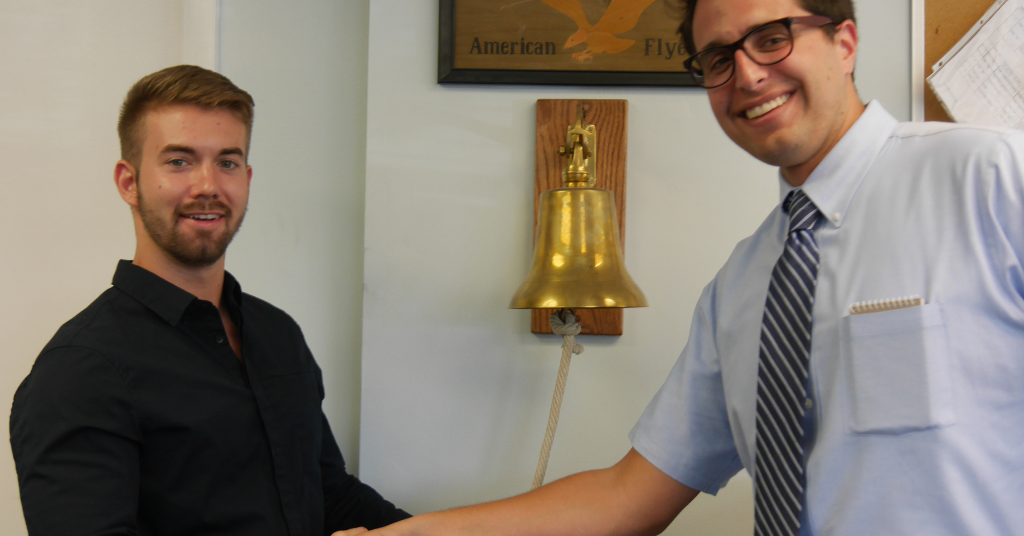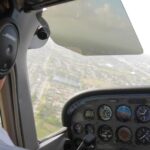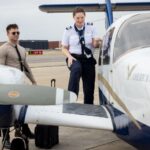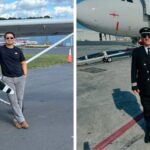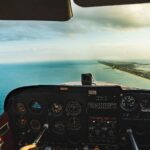We get it. You are a successful professional and don’t have the time to finish getting your pilot certificate. If you are like the several thousand other students we have, you probably work late during the week and spend your weekends either working or with your family. You couldn’t possibly fit flight training into your busy schedule. Right? Wrong. You just need to know what your options are.
Flight training consists of five components. These are (1) written preparation, (2) ground school, (3) simulator training, (4) airplane flights, and (5) homework. Each of these components plays a vital role in the training process and provides flexibility in your schedule.
Written preparation deals explicitly with the material and understanding what will be required of you to successfully pass the FAA knowledge exam. Many students memorize the answers to the test to ensure a high score. The problem is that they don’t actually learn anything; they just get a high score. Our process is more useful. We teach you the information so that no matter what question you are asked, you will be able to figure out the answer. Believe it or not, this will save you time and money later in your flight training.
American Flyers offers three-day weekend preparation courses to help you prepare for your FAA knowledge exams. We offer the Private Written Prep Course on the first weekend (Fri, Sat & Sun) of each month; the Commercial Written Prep Course on the second weekend (Fri, Sat & Sun) of each month; and the Instrument Written Prep Course on the fourth weekend (Fri, Sat & Sun) of each month. Even the busiest among us can find 3 days out of 365 days to prepare for our knowledge exam.
Ground school is different from knowledge exam preparation in that it follows the pace and content of your flight training. American Flyers training manuals are designed to match the flow and content of your flight training program. Because of this, your training manual becomes an essential element of the training process. We can schedule your ground sessions around your schedule, day or night. If you are too busy to come to one of our schools, we can even schedule you via our remote learning platform. That means you can complete your ground school lessons from home, your office, or your hotel if you are on the road.
In general aviation, what we call flight simulators are actually Advanced Aviation Training Devices (AATDs). These are excellent platforms for perfecting skills before getting into an airplane. Skills such as emergency procedures, lost procedures, navigation, and attitude flying are ideally suited to be introduced in the simulator. These devices also provide excellent platforms for introducing and understanding the various systems in the airplane. Many of our students come out of their simulator lessons with a greater understanding of, and confidence in, the systems in their airplane. Even more importantly, they understand how to troubleshoot and mitigate various issues. Simulator training can take place day or night, in good weather or bad, 365 days of the year. In many cases, these hours can even be used to meet the minimum qualifications for the certificate or rating being sought.
Time in an actual airplane can be used sparingly, depending on your training schedule. At American Flyers, we ensure that you learn the information in ground school, practice the new skill in the simulator, and then perfect the new skill in the airplane. This means we can schedule your flights at your convenience and based on your schedule. We try to schedule your flight time in three- or four-hour blocks. This means that you will only need to make about eleven to fifteen trips out to the airport to fly, and you will be done. Schedule two flights in a day, and it will be even quicker.
So far, we have reviewed everything we can do to help you earn your pilot certificate. The one thing that you will need to do on your own is your homework. Homework in flight training comes in many different shapes and sizes. Sometimes it might be reading, while other times it might be getting a weather briefing or planning a cross-country flight. Regardless of the topic(s), you will need to schedule a little time in your calendar to do your homework.
When did you first start thinking about finishing up your certificate or rating? If you had taken action on the steps above, you would probably be done already. Sometimes you may not think you have the time. But when you consider the reward of making the time, you have to ask yourself one question: “What am I waiting for?”




